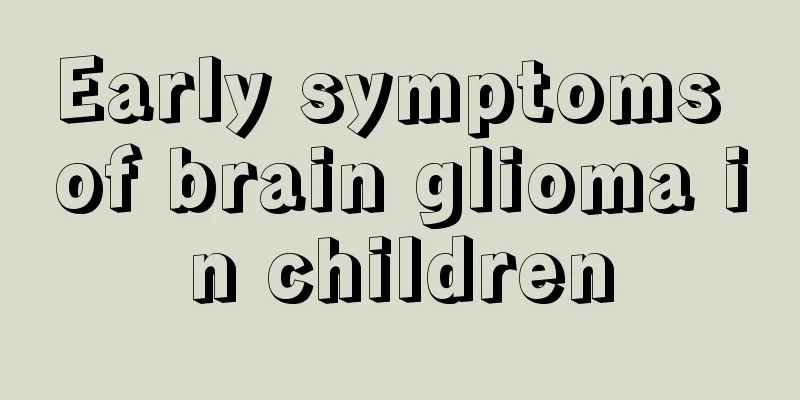Early symptoms of brain glioma in children

|
Early symptoms of glioma in children may include persistent headaches, nausea and vomiting, blurred vision, and behavioral changes. These symptoms require prompt medical attention for professional diagnosis. Glioma is a central nervous system tumor that originates from glial cells. Children's symptoms may vary depending on the location and size of the tumor. Headaches usually occur in the morning and gradually worsen. Nausea and vomiting may be related to increased intracranial pressure. Blurred vision or double vision may be caused by the tumor compressing the optic nerve, while behavioral and emotional changes may be due to the tumor's impact on specific areas of the brain. In addition to the above symptoms, parents should also pay attention to whether their children have motor coordination disorders, such as easy falls or unsteady walking, or limb weakness. These may be manifestations of tumors affecting the cerebellum or other motor function areas. Epileptic seizures or unexplained fainting may also be warning signs of brain tumors, especially in children with no history of epilepsy. Diagnosis of brain gliomas often requires detailed neurological examinations and imaging tests, such as MRI or CT scans, which can help determine the location and size of the tumor and its impact on surrounding tissues. In addition to the above symptoms, parents should also pay attention to whether their children have motor coordination disorders, such as easy falls or unsteady walking, or limb weakness. These may be manifestations of tumors affecting the cerebellum or other motor function areas. Epileptic seizures or unexplained fainting may also be warning signs of brain tumors, especially in children with no history of epilepsy. Diagnosis of brain gliomas often requires detailed neurological examinations and imaging tests, such as MRI or CT scans, which can help determine the location and size of the tumor and its impact on surrounding tissues. For children suspected of having early symptoms of glioma, it is extremely important to obtain specialist evaluation and diagnosis as soon as possible. Parents need to closely observe their children's daily performance, especially any sudden or persistent physical and behavioral changes. If in doubt, you should seek medical help without hesitation. Even if the symptoms are temporarily relieved, regular follow-up and observation are essential to prevent disease progression or recurrence. A balanced diet and regular schedule for children are also helpful to their overall health, but they cannot replace professional medical intervention. |
<<: What are the early symptoms of colorectal cancer? Three common symptoms
>>: Has the toothache in late stage of intestinal cancer spread?
Recommend
How about highland barley wine
Highland barley wine is brewed from highland barl...
What are the symptoms of red cupping
Nowadays, Chinese medicine health care has been p...
Glycated hemoglobin 8
In fact, physical examinations are crucial for ev...
Is it harmful if a new bed has a smell?
The bed is very important to us. It is our place ...
Attention! Lack of sleep is the primary cause of advanced gastric cancer in patients
In recent years, gastric cancer has become one of...
What to eat for advanced prostate cancer
Most people may be unfamiliar with prostate cance...
How to correctly diagnose malignant lymphoma at early stage
Malignant lymphoma is a typical lymphoma symptom....
What to eat when you have diarrhea, what foods can stop diarrhea
Every year when the seasons change from spring to...
What shoes are good for hiking
Hiking is an increasingly popular outdoor sport. ...
What are the common sense of lung cancer diet? Two major principles of lung cancer diet should be followed
Lung cancer is very harmful to health and consume...
How much does a blood test for nasopharyngeal cancer cost?
Nasopharyngeal carcinoma often occurs in the phar...
What is the disease of feeling panic?
The feeling of panic in the heart is medically kn...
Rotator cuff muscle training method
The shoulders are the hub for movement of our upp...
Sliced Noodle Ingredients
Sliced noodles are a type of pasta that people ...
What are the symptoms of lung disease?
Lung disease is one of the modern diseases with a...









